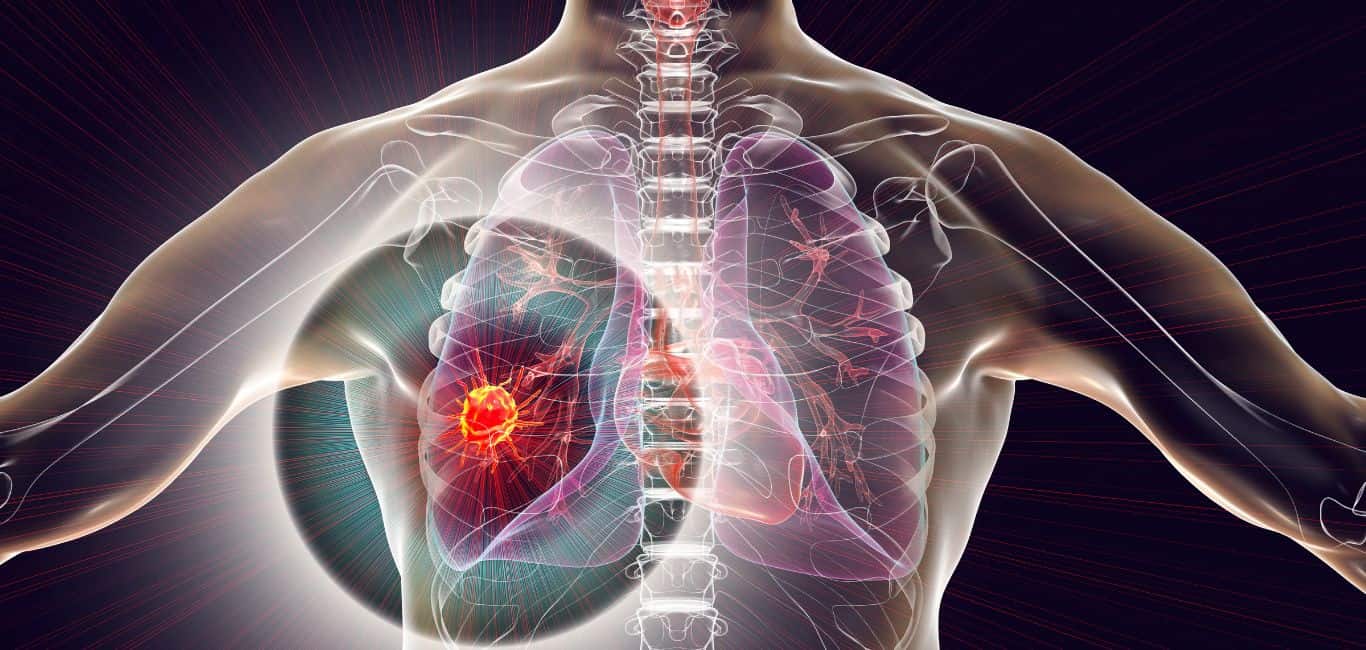
Scientists at the Guangxi Medical University in Nanning, China have identified eight genes that could serve as potential biomarkers for the early detection of the most common type of lung cancer through a simple blood test.
The researchers used machine learning software to analyse data from a public database – Gene Expression Omnibus (GEO) – to identify genes that express differently in non-small cell lung cancer (NSCLC) tissue compared to healthy tissue samples.
A total of 371 genes were found to function differently in the NSCLC tissue out of which eight – ABCA8, ADAMTS8, ASPA, CEP55, FHL1, PYCR1, RAMP3, and TPX2 – were identified as novel diagnostic biomarkers for the disease.
“TPX2 was involved in developing NSCLC and could be a therapeutic target for NSCLC. However, the exact mechanism remains unknown, and we will investigate the role of TPX2 in vivo experiments” the researchers noted in the study published in the journal Scientific Reports in October 2022.
The researchers also identified that monocytes, a type of immune cells, were the most activated in NSCLC. The movement of monocytes from blood to tumour tissue may be the cause of disease progression, they noted.
The results obtained for the eight genes identified were statistically significant, indicating their high sensitivity and specificity in early diagnosis of NSCLC, they added.
Challenges diagnosing non-small cell lung cancer
NSCLC accounts for the largest number of lung cancer cases globally, yet early diagnosis is challenging due to its asymptomatic nature.
“Serious symptoms like chest pain, breathing problems and liver dysfunction arise as the tumour grows and spreads to other body parts. All these factors make early diagnosis of NSCLC very challenging,” says Dr Manasa, consultant pulmonologist at Maheshwara Hospital in Hyderabad.
Identifying biomarkers for the disease could facilitate early diagnosis, which is known to be the most effective approach to treating this type of cancer’s progression and increasing an individual’s chances of surviving for five years.
Also Read
Scientists develop low-cost blood test to detect cancers
Breakthrough vaccine destroys brain tumours, prevents recurrence
While there are already a few biomarkers like being used for early diagnosis of breast and colon cancer respectively, biomarkers for NSCLC would be a game changer. The use of biomarkers does not stop at detection; they can also be used to see how well the body responds to treatment, adds Dr Manasa.
The Chinese researchers said that machine-learning based screening tools, such as the one they used, could aid doctors in better screening and diagnosing. This could also offer a noninvasive, reliable, and accurate diagnosis of NSCLC, they noted.

















